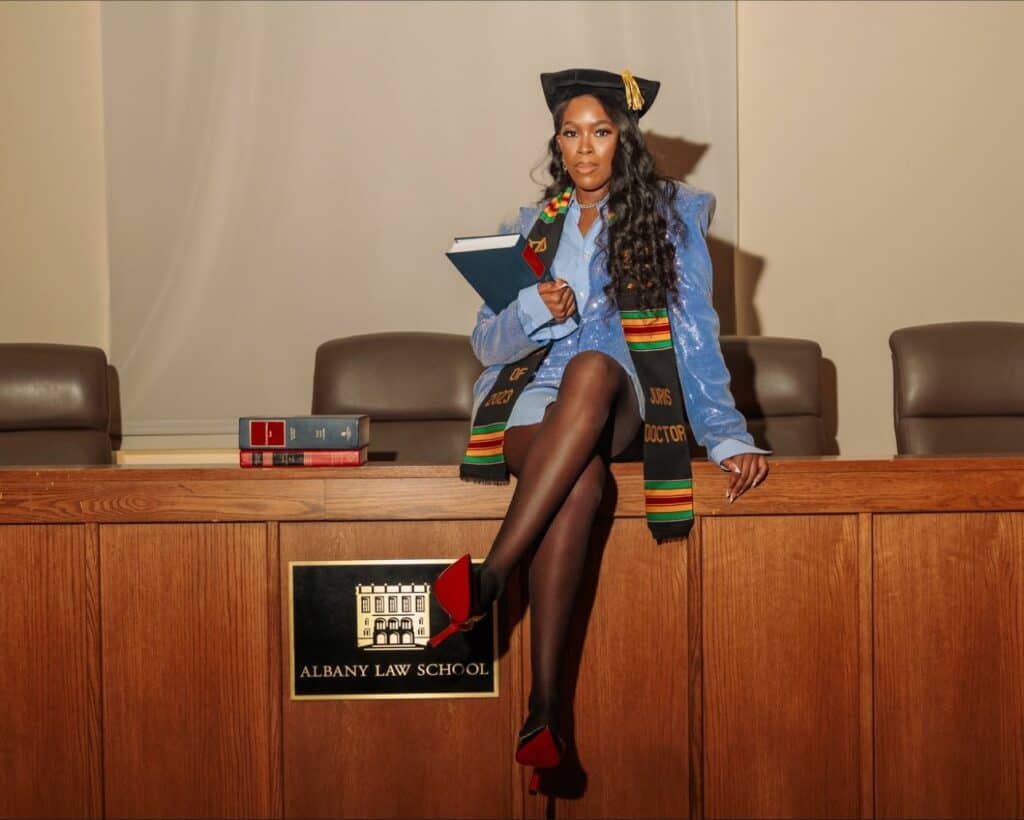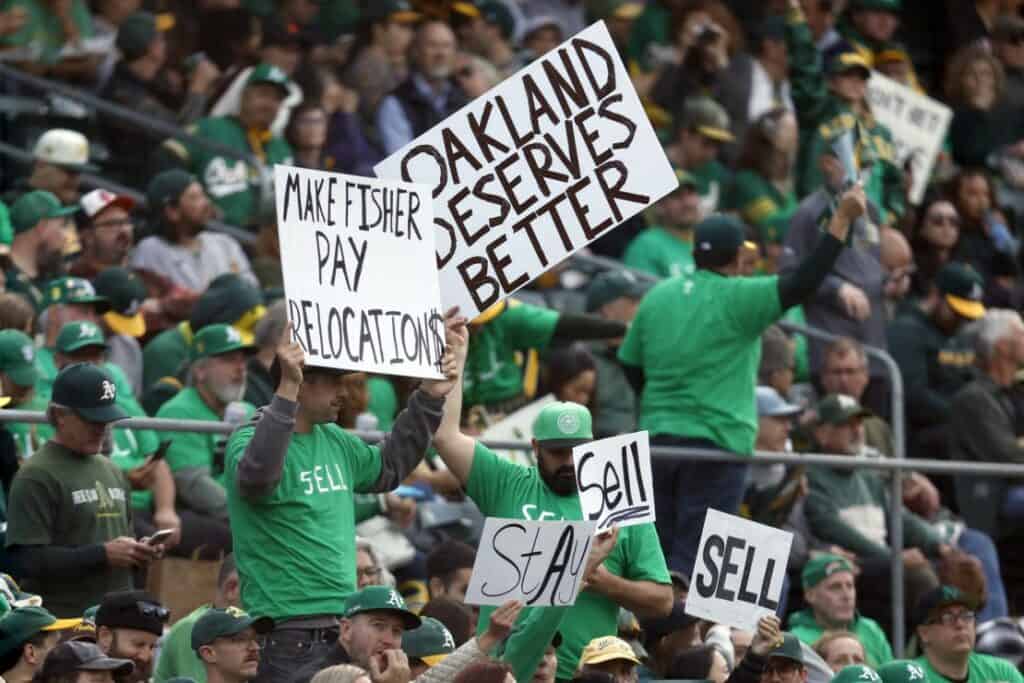The United States can be a divisive place, but nothing unites us like watching athletes compete.
People love the chance to escape reality and spend time watching others do battle in a variety of ways.
It can be easy to overlook the lives of the athletes we love to admire. To treat them all as some form of entertainment. But that is not necessarily right.
Each and every one of those players, coaches, trainers, and team staff exist beyond the court or field. They have families, friends, and other relationships, to whom they are not just a jersey number. They are individuals, with backstories, thoughts, and emotions, and with that comes a voice.
Thus, they have a right to use their voice. Especially the athletes who are held to a different standard than any other “regular employee.” Too often, they are disregarded as just the small forward for the Phoenix Suns, or an outside hitter for Team USA women’s volleyball.
“Stick to sports,” an outsider might say. “Your opinion on matters besides that is unimportant.”
Why does that happen? What denotes an athlete as unqualified to speak their mind? Most professionals (and everyone in college) experienced schooling at some point, not to mention their complicated paths through life. Therefore, the notion that they should keep quiet about what affects and others like them is ludicrous, and frankly, disrespectful.
Whether you like it or not, politics play a role in every person’s life. Lawmakers’ decisions across America affect millions, through education, housing, or healthcare. In turn, they reconstruct society as well. It manifests in relationships, interactions, and traditions that impact everyone.
This is why athletes cannot keep quiet.
Early Events
In order to understand the fraught history between athletes and history, let’s go back to the early 1900s. We’ll start there, and look at several athletes who challenged the status quo.
Jack Johnson
Born in Galveston, Texas, in the wake of the Reconstruction era, Johnson was a towering man at 6’2″. He desired the world heavyweight championship, but the culture of segregation was not going to let that happen easily.
White boxers refused to face him, forcing Johnson to wait for years for his chance. He got it in 1908, as he beat Tommy Burns in 14 rounds in Australia. The man filled with confidence and bravado was not done, however.
He wanted to take on the renowned Jim Jeffries, who had refused a match on multiple occasions. White fans of the sport agreed with Jeffries, despising the thought of a black man on top.
Nevertheless, Johnson finally got his opportunity in 1910. 22,000 flocked to see the ‘Fight of the Century‘ in Reno, Nevada, where Johnson outlasted Jeffries in 15 rounds.
He continued to gain scrutiny for his habits outside the sports, living lavishly and dating white women. Johnson earned the ire of society, and was arrested in 1912 for violating the Mann Act.
He was then convicted for taking his white girlfriend along state lines for ‘immoral purposes’, and fled the U.S. Jack eventually returned and served a year in prison. He died in 1946, in an accident related to the racial segregation of North Carolina.
Family members and fans fought since then to clear his tarnished name, including the like of Senator John McCain and Sylvester Stallone. Johnson received a posthumous pardon from President Trump in 2018.
Jesse Owens
A more popular story of a how a black man symbolically defeated white supremacy came at the 1936 Berlin Olympics.
Adolf Hitler was attempting to build a global power in the form of an Aryan nation. Consequently, he expected to dominate all forms of the Games. It should have been their coming-out party.
Then Owens arrived in Germany and said, “Not so fast.”
He proceeded to win the 100-, 200-, and 400-meter races as well as the long jump. In the process, he showed Hitler and the world the kind of talent African Americans possess. The talent often suppressed by the surrounding white society.
Owens’ return to his home country should have been filled with parades, pageantry, and all types of celebration. Instead, America greeted him with good old segregation.
The president at the time, Franklin Delano Roosevelt, played his part in the festivities as well. He refused to invite Owens to the White House, or even send him a telegram.
Segregation continued legally until the 1960s, forcing Owens to sit on the back of the bus. His performance for his country entitled him to vastly better recognition and treatment than he received.
In fact, Germany showed more respect to him than America. The country he soundly defeated.
His story represents another blemish on the U.S.’ record in terms of their vilification of black athletes.
Civil Rights Era
Such behavior continued through the integration of Major League Baseball and other sports. Jackie Robinson, Satchel Paige, and college athletes who made their way onto teams experienced similar discrimination.
Institutions that realized the benefit of having black talent quickly took advantage. Simultaneously, the rest of society refused to acknowledge them and the many others who looked like them as equal human beings.
As time wore on, blacks decided they were done with the current state of affairs. Some notable athletes joined them in their fight.
Muhammad Ali
The brazen and fiery boxer made his first foray into the world in the 1960 Olympics. Then known as Cassius Clay, the 18-year-old from Louisville, Kentucky, won a gold medal and the light-heavyweight title. The young man’s actions at the time did not suggest an activist future.
Once he reached home, however, he faced the same struggles as any other black person during that time. He did not let that stop his career from growing.
In 1964, he defeated the intimidating Sonny Liston in Miami to retain his title. In all stages of that event, he showed his confidence and trash-talking abilities. Of course, it helped that he could back it up.
Soon afterwards, he officially joined the Nation of Islam and became Muhammad Ali. It was a statement that affirmed his involvement in the world outside sports.
1966 set the stage for Ali’s infamous moment of political activism. After learning of his draft eligibility, he openly questioned the Vietnam War.
He famously said to reporters, “I ain’t got nothing against them Vietcong.”
That comment earned the ire from supporters of the war and critics alike. American media jumped at the opportunity to oppose one of the world’s brightest stars. After he refused the draft as a conscientious objector in April 1967, the sports world joined in the anger. Boxing commissions stripped Ali of his title. He did not fight again until 1970.
His decision to speak up about the issues of America took years of his athletic prime away. He proudly faced backlash and criticism to stand for what he thought was right. While far from perfect, those who remember him and today’s athletes still honor his activism.
John Carlos and Tommie Smith
The months that led up to the 1968 Summer Olympics were far from quiet. Figures such as Martin Luther King, Jr. were assassinated, inciting riots across America. It revealed the country’s shameful reputation in the wake of legal segregation.
As a result, the Track phenoms knew they had to take a stand. In doing so, they created the Olympic Project for Human Rights. Carlos and Smith intended to use the worldwide event as a platform, to call to attention America’s evils.
The prospect of facing imminent nationwide outrage was tangible. Despite that, the two performed admirably. Tommie Smith set a world record 19.83-second time in the 200-meter race, and John Carlos finished third.
With the race over, the athletes prepared to stand on the podium. They took off their shoes, donned beads, and raised their gloved fists in the now-famous pose of the Black Power movement. Second-place finisher Peter Norman, from Australia, wore a badge for the Olympic Project.
The crowd fell silent, and then grew angry. Extremely angry. Team USA rushed the athletes away as the fans hurled insults in their direction. The team suspended Smith and Carlos, and the nation back home further punished them for their actions.
Their activism caused such international anger that Norman’s career was ruined from then on. Australia refused to send him to the Olympics, and he spiraled into a life of alcoholism and depression. The aftermath marked the severity of the retribution for athletes’ political statements.
Smith and Carlos were eventually reaccepted into the sports fold. However, the Olympic Committee did not induct them into the Hall of Fame until November of last year.
Modern Interactions of Politics and Sports
Since that time, athletes have continued to use their voices for social justice. For argument’s sake, however, let’s jump to this past decade.
Colin Kaepernick
It’s impossible to understate the significance of his actions in the fight for racial equality. The seemingly endless stream of deaths of black people at the hands of police received national attention from 2014 to 2016.
Kaepernick first kneeled during the national anthem at a NFL game in August of 2016. The moment came just a month after the notable shootings of Alton Sterling and Philando Castile occurred on back-to-back days.
He gained the support of the San Francisco 49ers, the team for which he played. Other players on his team, such as Eric Reid, and across the league, joined the movement which lasted throughout the season.
Beyond that, much of America voiced their loud displeasure for his choice. They demonized Kaepernick as un-American and unpatriotic. People associated his protest of police brutality with hatred for the military and the flag. When Nike voiced their support, the division further surged. Socks, shirts, and other merchandise with the Swoosh logo were burned.
All because one man wanted to take a stand against racism.
The declining play of him and the 49ers (due to a host of factors) led him to the open market in 2017. NFL teams likely feared the reactions to his behavior if he signed on to their team. He hasn’t played a down since.
Despite that, he remains an activist in numerous social issues. And his original protest has regained attention since the murder of George Floyd.
Megan Rapinoe and U.S. Women’s Soccer
Days after Kaepernick kneeled at a game, Rapinoe did the same. At a U.S. Women’s National Team game, her protest sparked similar backlash from the presiding federation.
President Sunil Gulati and the U.S. Soccer Federation (USSF) released a statement encouraging players to stand during the anthem. Later, it released a policy that mandated players to do so.
Rapinoe’s stand with Kaepernick and African-Americans held significance. As a member of the marginalized LGBTQ+ community, she recognized the power and need to be an ally.
Years later, new president Cindy Parlow Cone took responsibility on behalf of the organization and apologized to Rapinoe.
That isn’t the only recent controversy that she and USWNT have been involved in.
In March of 2019, the USWNT filed a lawsuit against the USSF alleging gender discrimination in terms of pay. The suit came after years of tension between the two parties. Since the filing, both sides have taken wins and losses.
The USWNT won the World Cup final, attracting more attention to their cause. The public has sided with the team, especially after language delivered by the federation in March of this year. The language in question appeared demeaning towards women and their athletic abilities, leading to the resignation of Carlos Cordeiro.
Rapinoe praised the USSF for its support of women’s soccer in comparison to other nations. Although, she remains on the frontlines for better conditions for her and other players.
The soccer star continues to be a forceful presence today. At this year’s ESPY Awards, she, girlfriend and WNBA icon Sue Bird, and NFL quarterback Russell Wilson called for unity and a national reckoning with the issues that plague America.
College athletes
In the aftermath of acts of police brutality and racial injustice, the sports world looked to voices of authority to speak up. Some answered the call, addressing the issues to be fixed and affirming that black lives matter.
Others proved that the collegiate football sphere was far from perfect.
Iowa’s program exploded with allegations of racial misconduct and an unwelcoming culture. Former players called out now-former strength and conditioning coach Chris Doyle for instances of verbal harassment and racism, and head coach Kirk Ferentz for letting it happen.
Florida State player Marvin Wilson dismissed a report on Twitter that new head coach Mike Norvell individually met with players and discussed the current issues in detail. Dabo Swinney and Clemson’s program also received accusations of racial misconduct.
Most of those issues have since been remedied, or are currently in the process. But the stir they caused sparked the possibility of talented black athletes going to HBCUs. A potential shift of talent remains to be seen.
Days ago, Mississippi State running back Kylin Hill publicly stated that he refused to play for the Bulldogs if Mississippi did not remove its current state flag. The flag has the Confederate ‘Stars and Bars’ prominently displayed. With the support and activism of Hill and others, Gov. Tate Reeves signed the bill into law to remove the flag in its current form.
At Kansas State, athletes expressed their desire for swift university action after a student posted an inappropriate statement denouncing the legacy of George Floyd. Some threatened to sit out their respective seasons.
Final reasoning
In this new era, athletes are becoming acutely aware of their societal and financial impact. By using their voices to stand for the unheard voices of their fellow community, they are actively influencing social change.
For many, they want to keep athletes from talking about politics, but only because doing so forces us to have uncomfortable conversations. America is an inherently flawed nation, with examples of wrongdoing available for all to see.
In order to remedy those past transgressions, everyone must have a voice to be able to fight for their rights.




